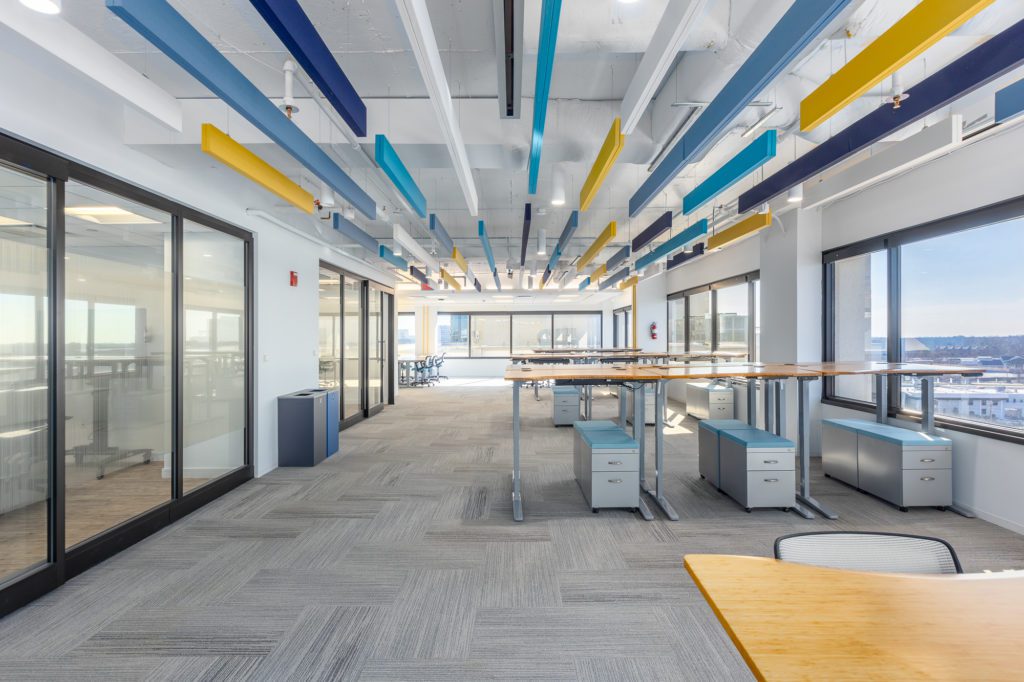Lately, employee well-being has become a significant topic for companies across all industries. Organizations came to understand the direct correlation between employee contentment and productivity, job satisfaction, and overall health. One important factor that directly correlates with employee well-being is work space. An appropriate and cohesive environment is required for improving employee morale, focus, and engagement. In this information, we will delve deeper into why office spaces contribute to employee well-being and what elements make up a conducive shared office space.

Lighting, Color, and Comfortable Seating
When discussing an appropriate office space, lighting is among the main factors. A well-lit office with natural light is ideal. Besides natural light, you should think about the consequences of light color. Different light colors have different effects on the kind of work being done. Cooler lights, usually white, are perfect task lighting that helps to enhance productivity. Conversely, warmer lights are ideal for creating a comfortable and comfortable ambiance. Additionally, comfortable seating is essential in regards to ergonomics. It improves employee focus and reduces stress from long periods of sitting. Chairs with adjustable features really are a useful addition to the workspace.
Clean and Nurturing Environment
Another consideration while designing office space is the environment. An unclean and cluttered space can result in avoidable stress and anxiousness. Form teams with commercial cleaning services to make sure your working environment always looks and feels its best. A cleanup crew can make sure that elements like trash and dirty surfaces are cleared regularly. Additionally, biophilic elements, such as for instance plants at work, have calming effects on employees. They help decrease tension and anxiety by bringing nature inside, which nurtures employees.
Room for Movement and Collaboration
A well-designed office space will offer flexible configurations for employees to interact, depending on the form of work and task at hand. For this reason it's essential to generate collaborative workspaces. Whether it's brainstorming sessions or group projects, these workspaces promote teamwork and increase productivity. Every employee needs a destination for a pull away and work independently, too. Flexible floor plans are great for creating areas for impromptu meetings and confidential discussions for employees seeking privacy.
Safety, Privacy, and Mental Health
Safety is a major concern for each office space, and maintaining high quantities of safety helps to provide peace of mind. Proper security features, sprinkler systems, and standard working equipment must certanly be in position to prevent accidents and injuries. Additionally, preserving privacy is important to promoting employee well-being. Every employee needs to have the privacy to execute their job without interruptions, ensuring clear communication and respect among them. Lastly, mental health support and resources help combat stress and anxiety among employees. Providing necessary resources like counseling and mental health resources will help employees feel more supported and motivated.

Conclusion:
Designing comfortable, cohesive office spaces is required for employee well-being and effective work. Amenities like natural light, biophilic elements, flexible floor plans, comfortable seating, and privacy ensure that employees feel supported, nurtured, and motivated to perform their tasks well. Additionally, creating room for team collaboration, maintaining proper safety features, and mental health resources guarantee that employees feel safe, valued, and respected. Departments must prioritize their health, well-being, and safety to ensure that they're happy, healthy employees who subscribe to developing a positive work environment and promote the success of the organization.
